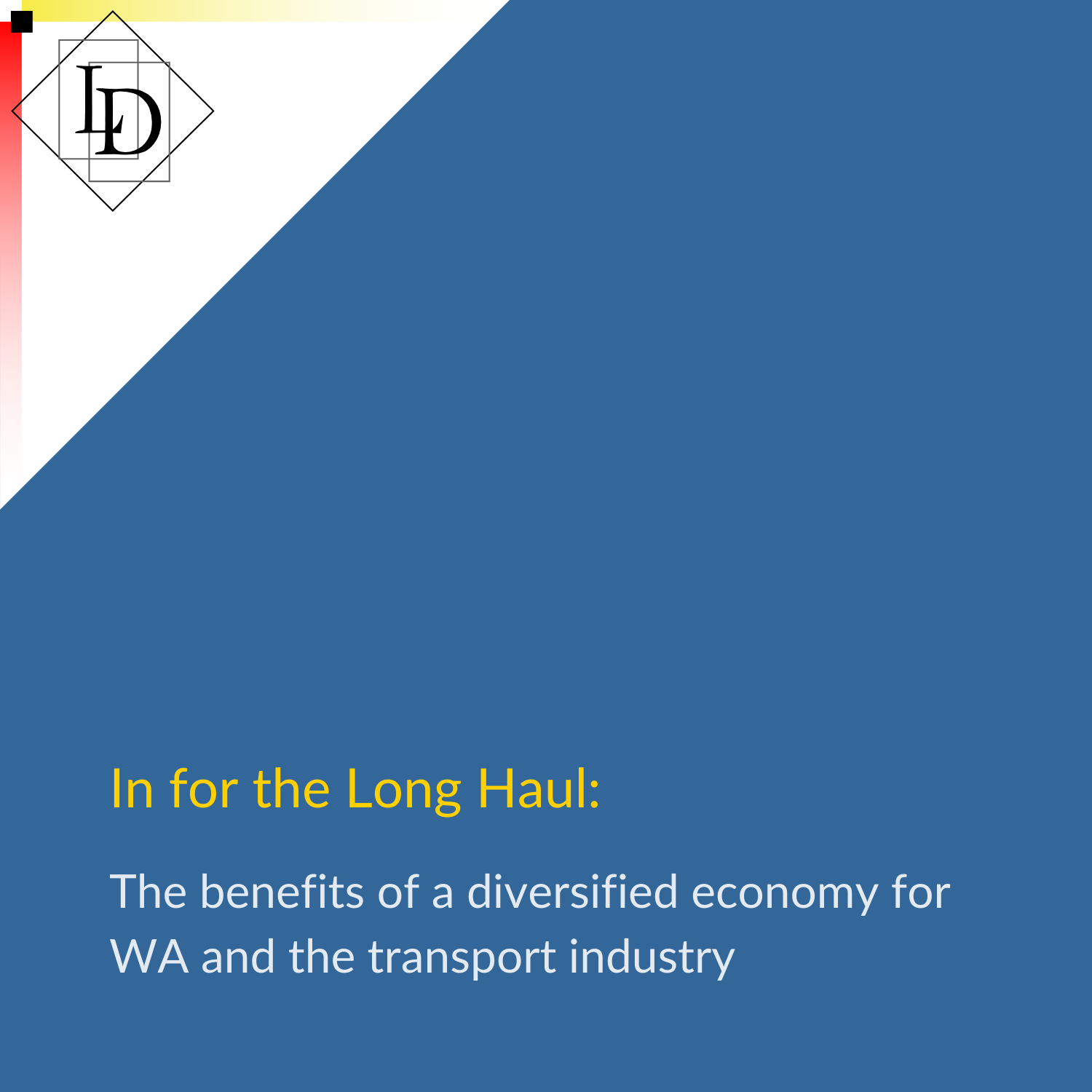
In for the Long Haul: The benefits of a diversified economy for WA and the transport industry
For Western Australia’s transport sector, the mining industry has been a reliable engine of growth. It’s no secret that the fortunes of transport companies are closely tied to the ebb and flow of mining activities. The steady stream of exports, primarily iron ore and LNG, has created consistent demand for freight and logistics services. But as the global economy shifts and the calls for a more diversified industrial base grow louder, what does that mean for transport companies on the ground? Let’s weigh the pros and cons.
Mining has been a lucrative anchor for the transport industry. The transport of minerals and raw materials is a massive logistical operation that requires everything from trucking services to rail networks and port facilities. This close relationship has created robust infrastructure and steady work for logistics providers, offering a degree of predictability in an otherwise volatile market.
However, this dependency has its downsides. The cyclical nature of the mining industry means that transport companies often experience sharp swings in demand. When global demand for commodities falls, the ripple effect hits transport businesses hard. Reduced mining output means fewer goods to move, resulting in idle trucks, underutilized rail services, and empty warehouses.
A more diverse industrial base in Western Australia could bring several advantages to the transport sector. By promoting existing industries like local manufacturing, renewable energy, and agriculture, Western Australia could provide a broader base of clients for transport companies. Instead of relying on a single, export-driven industry, transport providers could serve a variety of sectors, smoothing out the peaks and troughs of mining cycles.
The recent push for local railcar manufacturing is a prime example of how diversification could benefit transport. With more goods produced locally, there is increased demand for domestic transport services, as opposed to a focus on port-based exports. This shift would keep trucks and rail networks busier, even during periods when global export demand might falter.
A more varied economy would be better positioned to withstand global economic disruptions. Transport companies could mitigate the risk of downturns in the mining sector by pivoting to support industries that are less exposed to international market fluctuations, such as local food production or renewable energy projects.
While the potential benefits of a diversified economy are clear, the transition poses significant challenges for the transport industry. Much of the existing transport infrastructure in Western Australia – such as rail lines and port facilities – is tailored specifically for the needs of the mining industry. Adapting this infrastructure to accommodate a wider range of industries would require significant investment. For example, the logistics required for manufacturing and agriculture may involve different handling equipment, storage needs, and distribution networks.
Transport companies have developed deep expertise in servicing the mining sector, from specialized trucking to heavy-haul rail operations. Transitioning to serve new industries might require different skills and capabilities, such as handling refrigerated goods for agriculture or complex logistics for advanced manufacturing. Upskilling the workforce to meet these new demands could be a costly and time-consuming process.
Expanding into new sectors isn’t just a logistical challenge – it’s a regulatory one as well. Transport companies may need to navigate new compliance requirements related to local manufacturing and agriculture, which could add complexity to their operations. Policy changes are necessary to streamline this process and make it easier for transport providers to diversify their client base.
The reality is that mining will continue to be a cornerstone of Western Australia’s economy for the foreseeable future. The key to building a resilient transport sector lies not in abandoning mining, but in complementing it with other industries. By supporting local manufacturing initiatives, investing in renewable energy projects, and fostering growth in agriculture and technology, Western Australia can create a more balanced economy. This balanced approach would allow transport companies to continue benefiting from the strength of the mining sector while opening up new avenues for growth and stability.
For the transport industry in Western Australia, diversification isn’t about shifting away from what’s already working; it’s about building on it. By embracing a broader industrial base, transport companies can gain more consistent demand, reduce their exposure to global market fluctuations, and position themselves for long-term success. It’s a strategic pivot that requires investment, innovation, and collaboration, but the payoff – true resilience – will be worth it.
The road ahead isn’t without its bumps, but with the right investments and policy support, the transport industry can navigate this transition and emerge stronger, ready to serve a more diverse and robust Western Australian economy. Join the conversation on industry diversification and resilience. Contact us to see how our tools can support your transition and help build a stronger Western Australian economy.